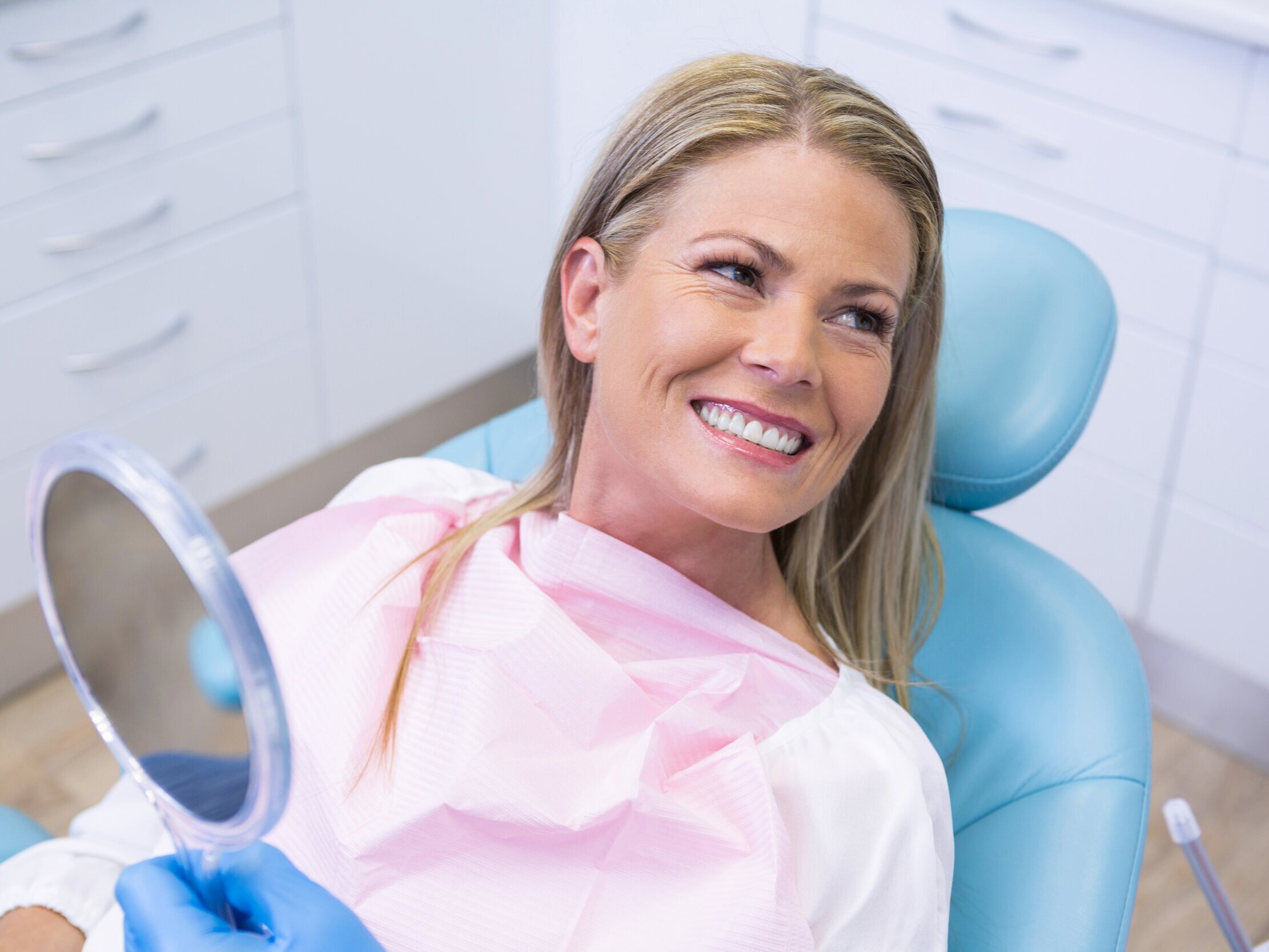
Preventive Care
Happy mouth, happy life.
Preventive dental care is important throughout your life, no matter your age. By practicing good oral hygiene at home and scheduling regular checkups with your dentist, you can help keep your smile bright and healthy for many years to come.
Here are a few simple ways to prevent the buildup of plaque and cavities:
01 Brushing
Brush your teeth at least twice a day with a soft-bristled toothbrush. Use fluoride toothpaste to remove food particles and plaque from the tooth surfaces. Also, be sure to brush the top surface of your tongue; this will remove any extra plaque-causing food particles, and keep your breath fresh!
02 Flossing
Clean between your teeth by flossing at least once a day. You can also use a mouthwash to help kill bacteria and freshen your breath. Decay-causing bacteria can linger between teeth where toothbrush bristles can't reach. Floss and mouthwash will help remove plaque and food particles from between the teeth and under the gum line.
03 Nutrition
Eat a balanced diet, and try to avoid extra-sugary treats. Nutritious foods such as raw vegetables, plain yogurt, cheese, or fruit can help keep your smile healthy.
04 Maintenance
Remember to schedule regular check-ups with your dentist every six months for a professional teeth cleaning.
05 Prevention
Ask your dentist about dental sealants, protective plastic coatings that can be applied to the chewing surfaces of the back teeth where decay often starts.
06 Protection
If you play sports, be sure to ask your dentist about special mouthguards designed to protect your smile.
Prevent problems before they start.
The health of your teeth and mouth is very important to the well-being of your entire body, and while routine brushing and flossing at home are necessary to keep your smile looking its best, visiting your dentist for a comprehensive exam and cleaning is essential. The American Dental Association recommends that you visit your dentist every six months to ensure your teeth stay healthy and your smile stays beautiful. By routinely seeing your dentist for exams and cleanings, you can:
Prevent tooth decay, gum disease and bad breath
Save money by avoiding costly and extensive dental procedures
Keep your teeth white by reducing staining from food and drinks
Shorten the time spent in your dentist's office
Have a smile that will last a lifetime
Nervous about your appointment? Here’s what to expect.
The Exam
During your exam, your dentist will thoroughly examine your teeth and gums for signs of tooth decay, gum disease, and other health problems. Your dentist may also want to take X-rays to see what is happening beneath the surface of your teeth and gums.
Whether these X-rays are traditional or digital, the images provided will help your dentist discover dental issues not visible to the naked eye.
Professional Cleanings
Your dental hygienist will begin your cleaning by exploring the surface of your teeth to determine if you have any cavities and to examine the quality of existing fillings. The dental hygienist will then perform a periodontal exam to make sure your gums adhere tightly to your teeth, and no periodontal disease or bone loss may be occurring.
Next, your hygienist will carefully clean your teeth with a variety of tools to remove any hard mineral buildup (tartar) from your teeth. Then your hygienist will floss your teeth, use a polishing compound, and apply fluoride. Cleanings usually aren't painful, but if you have any anxiety about your dental exam, be sure to let your hygienist know. They may offer several sedation options to ensure your comfort.
If your dentist or hygienist finds tooth decay or gum disease, they will talk to you about changing your brushing or flossing habits. In severe cases, they may recommend antibiotics or other dental treatments. If your teeth and gums appear to be healthy, your dentist will probably recommend that you continue your brushing and flossing routine as usual.



